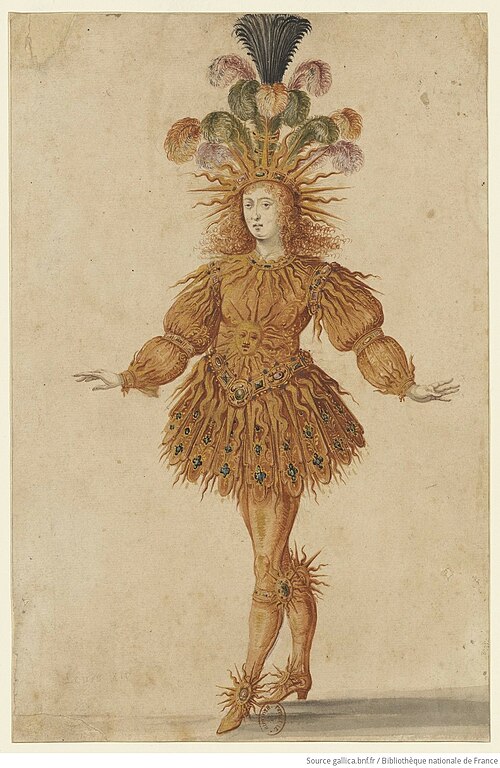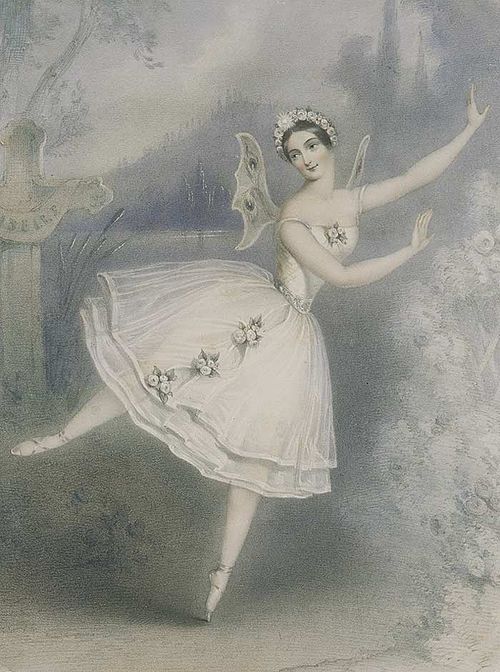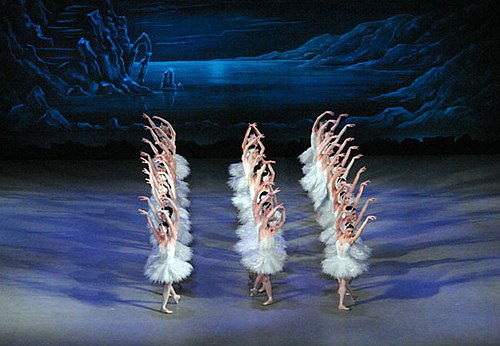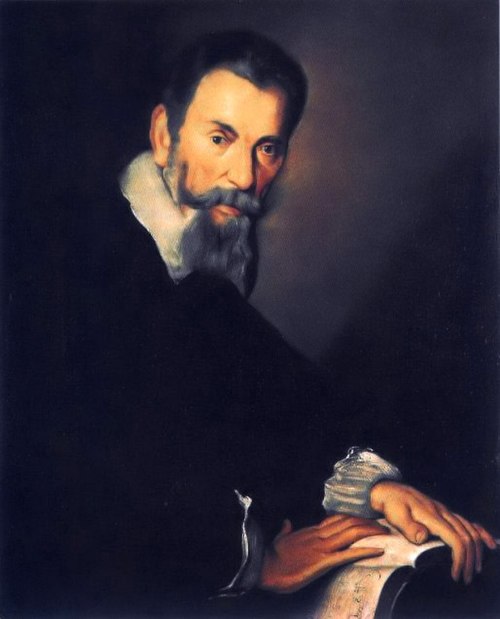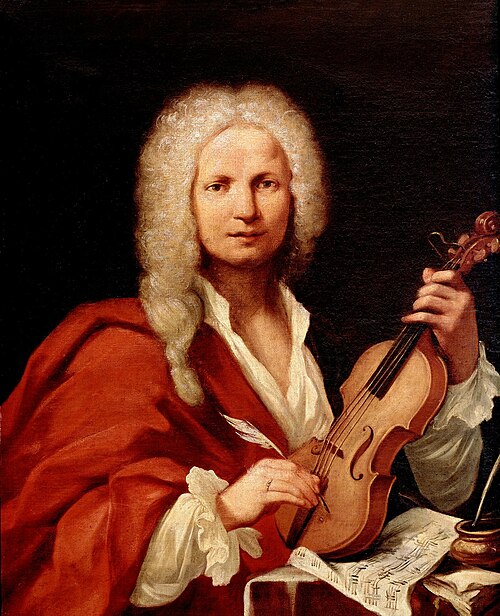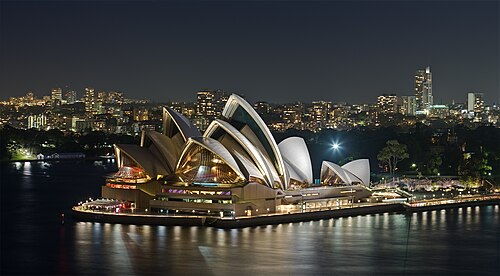Balletnoun
A classical form of dance.
Balletnoun
A theatrical presentation of such dancing, usually with music, sometimes in the form of a story.
Balletnoun
The company of persons who perform this dance.
Balletnoun
(music) A light part song, frequently with a fa-la-la chorus, common among Elizabethan and Italian Renaissance composers.
Balletnoun
(heraldry) A bearing in coats of arms representing one or more balls, called bezants, plates, etc., according to colour.
Balletverb
To perform an action reminiscent of ballet dancing.
Balletnoun
An artistic dance performed as a theatrical entertainment, or an interlude, by a number of persons, usually women. Sometimes, a scene accompanied by pantomime and dancing.
Balletnoun
The company of persons who perform the ballet.
Balletnoun
A light part song, or madrigal, with a fa la burden or chorus, - most common with the Elizabethan madrigal composers; - also spelled ballett.
Balletnoun
A bearing in coats of arms, representing one or more balls, which are denominated bezants, plates, etc., according to color.
Balletnoun
a theatrical representation of a story performed to music by ballet dancers
Balletnoun
music written for a ballet
Ballet
Ballet (French: [balɛ]) is a type of performance dance that originated during the Italian Renaissance in the fifteenth century and later developed into a concert dance form in France and Russia. It has since become a widespread and highly technical form of dance with its own vocabulary.
Operanoun
(music) A theatrical work, combining drama, music, song and sometimes dance.
Operanoun
(music) The score for such a work.
Operanoun
A building designed for the performance of such works; an opera house.
Operanoun
A company dedicated to performing such works.
Operanoun
(by extension) Any showy, melodramatic or unrealistic production resembling an opera.
Operanoun
A collection of work; lang=en.
Operanoun
A drama, either tragic or comic, of which music forms an essential part; a drama wholly or mostly sung, consisting of recitative, arias, choruses, duets, trios, etc., with orchestral accompaniment, preludes, and interludes, together with appropriate costumes, scenery, and action; a lyric drama.
Operanoun
The score of a musical drama, either written or in print; a play set to music.
Operanoun
The house where operas are exhibited.
Operanoun
a drama set to music; consists of singing with orchestral accompaniment and an orchestral overture and interludes
Operanoun
theater where opera is performed
Opera
Opera is a form of theatre in which music is a fundamental component and dramatic roles are taken by singers, but is distinct from musical theatre. Such a (the literal translation of the Italian word ) is typically a collaboration between a composer and a librettist and incorporates a number of the performing arts, such as acting, scenery, costume, and sometimes dance or ballet.






